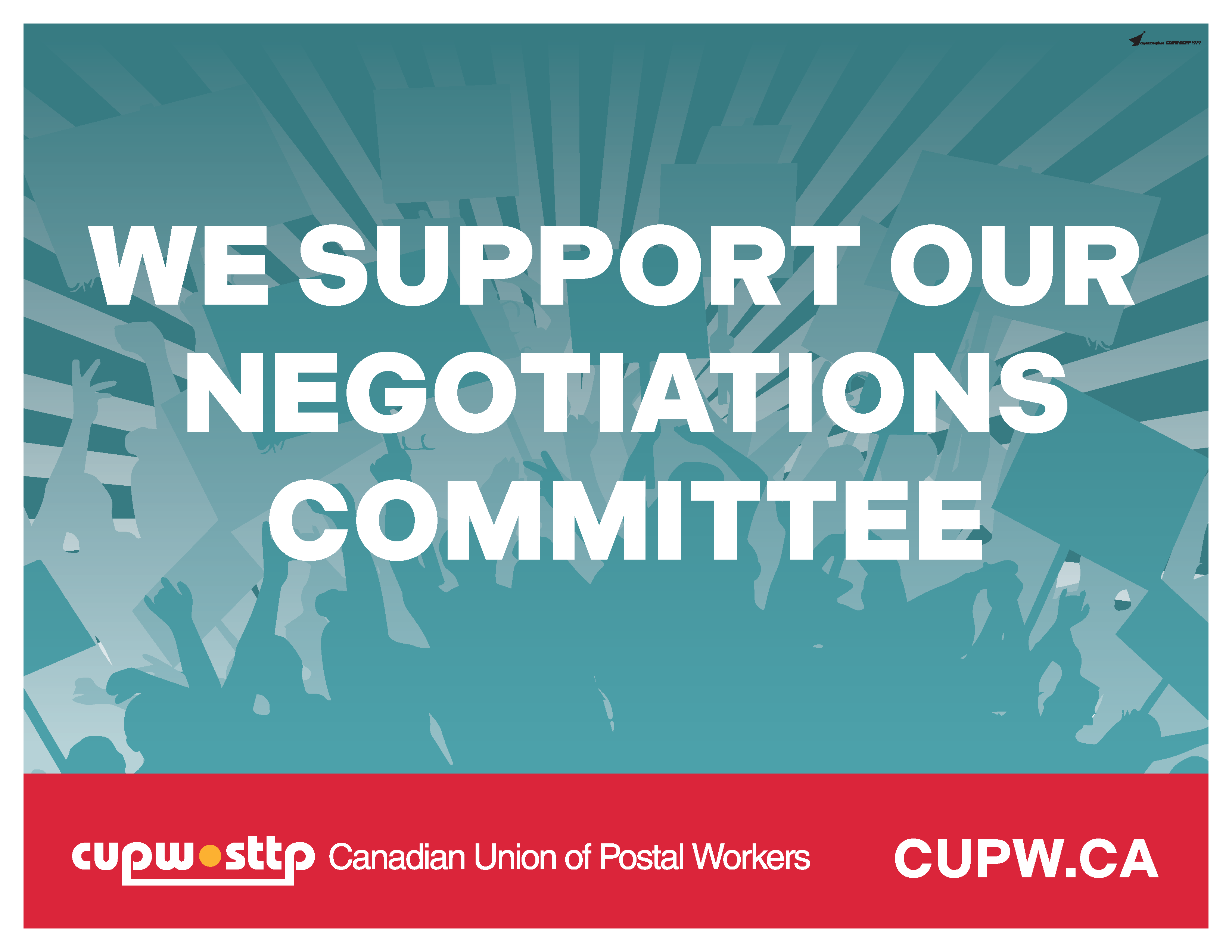
Friday August 16 2019
You probably received a letter in the mail from Canada Post with the subject: “Request for feedback on the Canada Post Pension Plan short-term solvency funding options.”
CUPW sees this letter as a violation of Article 3.01 (“Sole and exclusive bargaining agent”) of our collective agreements.
To inform you better, here’s some background on why Canada Post issued the letter, on the health of the Canada Post Corporation Pension Plan, and just what a solvency deficit is.
Our Canada Post Defined Benefit Pension Plan has a going concern surplus of $3.3 billion. This is very good news.
In the 2018 Canada Post Corporation Pension Plan (CPCPP) “Report to Members,” our Defined Benefit Pension Plan has a surplus of $3.3 billion. This is a healthy surplus.
This “going-concern” method of pension valuation assumes that the plan will be ongoing and that its assets must be sufficient to meet its liabilities (our pension benefits promised) when they come due in the future. If a plan is over-funded, it has a surplus.
This is the most relevant type of valuation for our plan.
But Canada Post keeps talking about a Pension Deficit.
The CPCPP has a solvency deficit. That is, by the “solvency” valuation, the 2018 Canada Post Pension Plan Report to Members shows a solvency deficit of roughly $5 billion. A solvency evaluation is calculated on the assumption that the pension plan could be wound up, and determines how much money the pension plan would need in order to cover the pension benefits of all retirees, survivors, and current workers.
Solvency deficits are strongly affected by long-term interest rates. In 2017, Canada Post reported that a 1% increase in the long-term interest rate would decrease solvency obligations by $4.9 billion.
So why did we get this “request for feedback” letter?
The provisions of the Pension Benefits Standards Act (PBSA) require Canada Post to contribute to make special payments to decrease the pension solvency deficit. From 2014-2017, Canada Post received solvency relief from the Federal Government, and did not have to make solvency payments. In 2018 and 2019, Canada Post was not required to make solvency payments due to a change in the PBSA legislation.
However, under current regulations, Canada Post is responsible for making solvency payments beginning in 2020, which could amount to hundreds of millions per year.
That’s why they sent the letter.
Does it make sense for Canada Post to ask for an exemption from making solvency payments?
Yes. If Canada Post had to make these solvency payments, they would not be able to operate and reinvest in growth.
In 2008, Canada Post argued that they should be permanently exempt from funding any solvency deficits. This was part of CPC’s submission to the 2008 Strategic Review of Canada Post entitled A Blueprint for Change. Canada Post stated:
“…Our pension plan is one of the largest in Canada. While it is fully funded on a going-concern basis, the regulatory rules related to solvency calculations require Canada Post to fund any solvency deficits. This requirement creates a significant and unpredictable drain on cash, even while the likelihood of Canada Post being wound up is remote due to its Crown corporation status. It requires the Corporation to put theoretical pension considerations ahead of operational and investment requirements.
As with Crown corporations in provincial jurisdictions, Canada Post should be either exempted from funding solvency deficits or the government should agree to guarantee payment for any such deficit, in the unlikely event that the company was wound up and a solvency deficit materialized.”
CUPW’s response
CUPW and the other unions of CPC employees have long agreed that the solvency-funding requirement is not relevant and unnecessary for the CPCPP.
CUPW intends to grieve the letter you received from CPC. It’s a violation of Article 3 of the RSMC and Urban collective agreements. If CPC is considering any changes to the pension plan, they are required to negotiate with CUPW – your bargaining agent – and not directly with the members.
We do not condone or recommend participation in this “feedback” process, which undermines your collective bargaining rights.
What should I do?
CUPW knows how much your pension plan means to you. We value your opinion, and we ask that you provide your feedback to mypension@cupw-sttp.org
We’ll collect and listen to the input of the membership to help us better represent your interests when we negotiate, and when your representatives meet with the Pension Advisory Committee.
We can protect our pension by standing up for collective bargaining and the collective agreement!
In Solidarity,
